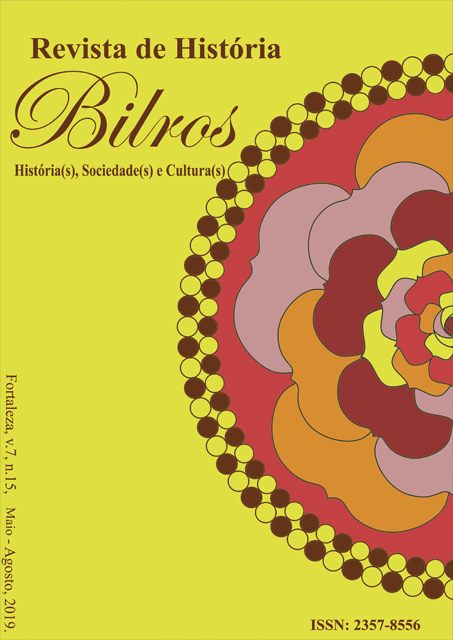PENSANDO A POLÍTICA EXTERNA BRASILEIRA A PARTIR DO VARGAS DOCUMENT
EXPECTATIVAS PARA AS RELAÇÕES BRASIL-EUA NA GUERRA FRIA (1951)
Palavras-chave:
Vargas Document, Relações Brasil-EUA, Política ExternaResumo
ste trabalho analisa o projeto de política externa idealizado por Getúlio Vargas em plenos anos iniciais da Guerra Fria a partir do exame do chamado Vargas Document. Elaborado em conjunto com uma comissão técnica, esse memorando traça um plano para o desenvolvimento do Brasil e expressa demandas, descontentamentos e expectativas a respeito das relações que se pretendia estabelecer com os Estados Unidos. Enviado para Washington em janeiro de 1951, o documento sinalizava interesses a serem defendidos pela delegação brasileira na IV Reunião de Consulta dos Chanceleres Americanos (março-abril de 1951). Dotado de tom prescritivo, o memorando nos permite pensar qual o pacto de cooperação econômica com os EUA era proposto pelo projeto político varguista num período em que o processo de consolidação da hegemonia estadunidense empurrava o Brasil, assim como outros países latino-americanos, em direção à busca de um “pragmatismo possível” para promover a modernização de suas economias. Como um observatório do pensamento político subjacente às elaborações da política externa varguista, a fonte nos ajuda a compreender o programa de desenvolvimento nacional defendido por Vargas, a sua relação com o capital privado e os caminhos da barganha empreendida em seu governo.
Publicado
Como Citar
Edição
Seção
Licença
Copyright (c) 2022 Natália Abreu Damasceno

Este trabalho está licenciado sob uma licença Creative Commons Attribution-NonCommercial 4.0 International License.






